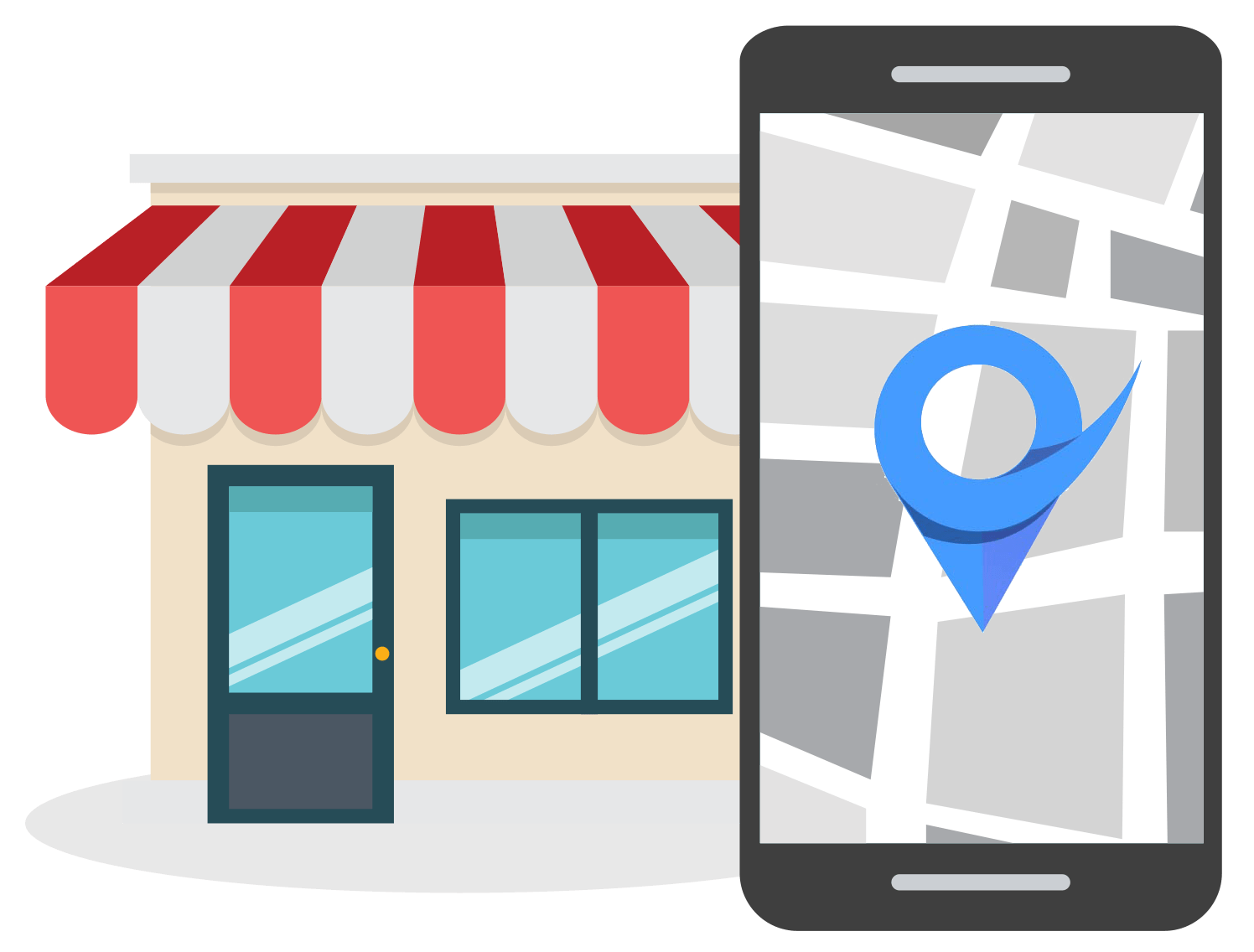10 Top Local SEO Tips for Service Area Businesses
Sep 7, 2023
Table of Contents
What is a service area business?
Why service area businesses need local SEO
Local SEO tips for service area businesses
Optimize GMB with the right keywords
Choose the right GMB business category
Take advantage of Google Posts
Ensure NAP details are consistent
Have a review management strategy in place
Complete your Google Q and A section
Create stellar location and service pages
Create local citations
Content marketing for local SEO
Build internal links
Wrapping up
It has become imperative for service area businesses to establish a strong online presence.
Whether you run a plumbing service, landscaping company, or home cleaning service, standing out from competitors and being visible to customers is essential for sustained growth.
This is where local SEO (Search Engine Optimization) comes into play.
By implementing effective strategies tailored to service area businesses, you can boost your visibility, attract potential customers, and ultimately propel your business to new heights.
In this article, we will delve into the world of local SEO for service area businesses, providing you with invaluable tips that will help you optimize your online presence and maximize your reach in your target market.
What is a Service Area Business?
A service area business, also known as a SAB, is a type of company that operates in a specific geographic region, providing products or services directly to customers at their location.
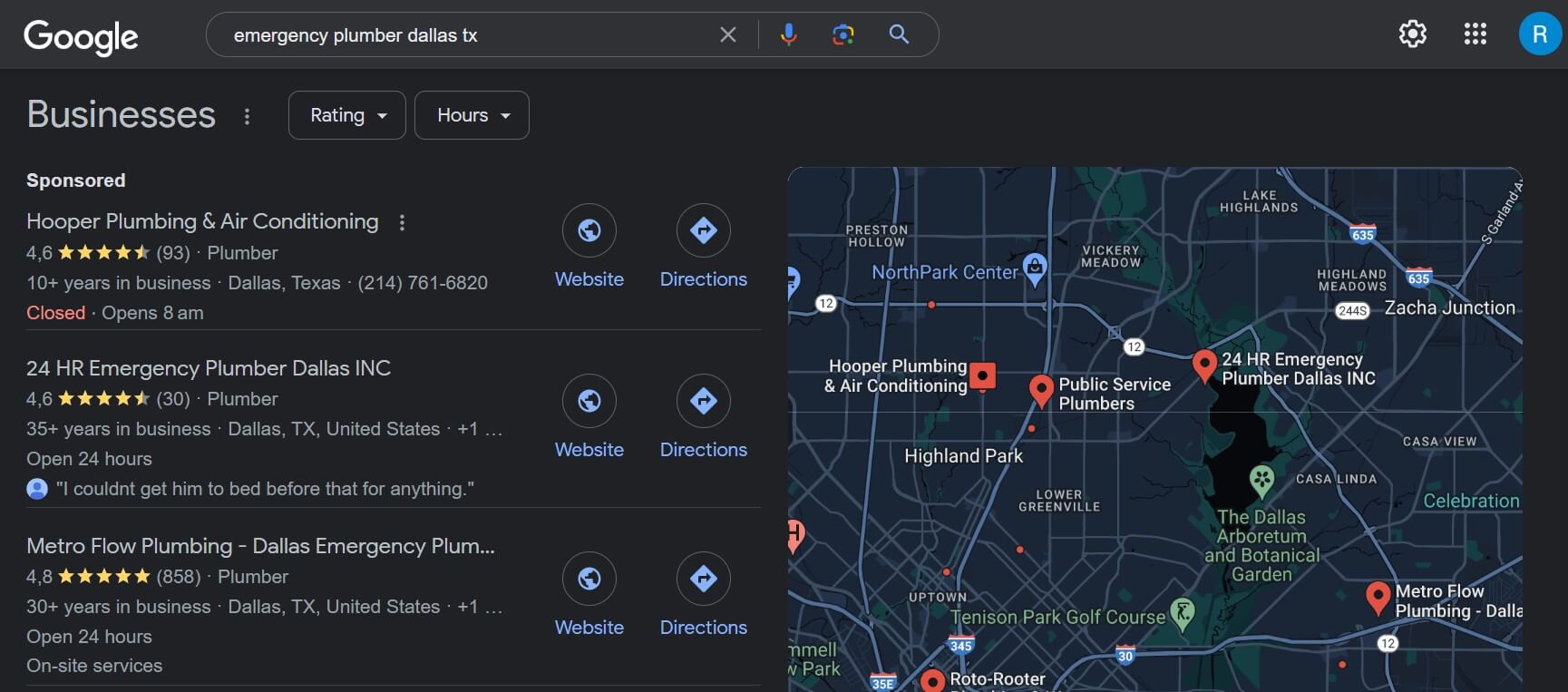
Unlike businesses with a physical storefront, service area businesses primarily serve their customers at their designated service areas, whether it be a specific city, town, neighborhood, or even a larger region.
These businesses typically include home service providers such as plumbers, electricians, HVAC technicians, pest control companies, and mobile pet groomers, among others.
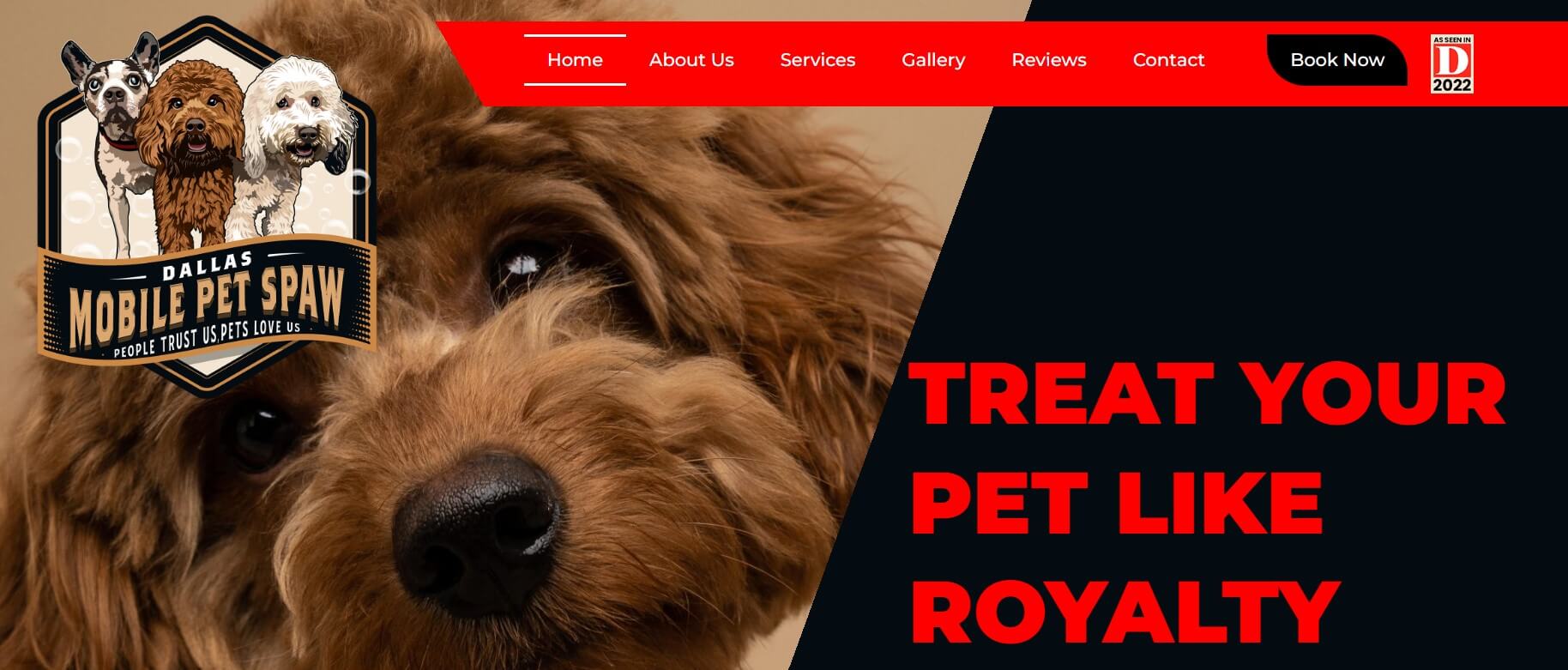
Why Service Area Businesses Need Local SEO
In an increasingly digital world, where customers turn to search engines for local services, service area businesses must harness the power of local SEO to stay ahead of the competition.
Here are several key reasons why local SEO is essential for service area businesses:
1. Targeted Visibility
Local SEO helps service area businesses increase their visibility among potential customers in their specific geographic locations.
By optimizing their online presence, including their website, Google My Business listing, and other relevant online directories, SABs can ensure that their business appears prominently in local search results when customers search for services in their areas.
2. Enhanced Relevance
Local SEO ensures that service area businesses are seen as highly relevant to customers searching for services within their specified regions.
By incorporating location-specific keywords, optimizing content with local information, and utilizing geo-targeted strategies, SABs can align their online presence with the needs and preferences of their target audience, boosting their chances of being discovered by local customers.
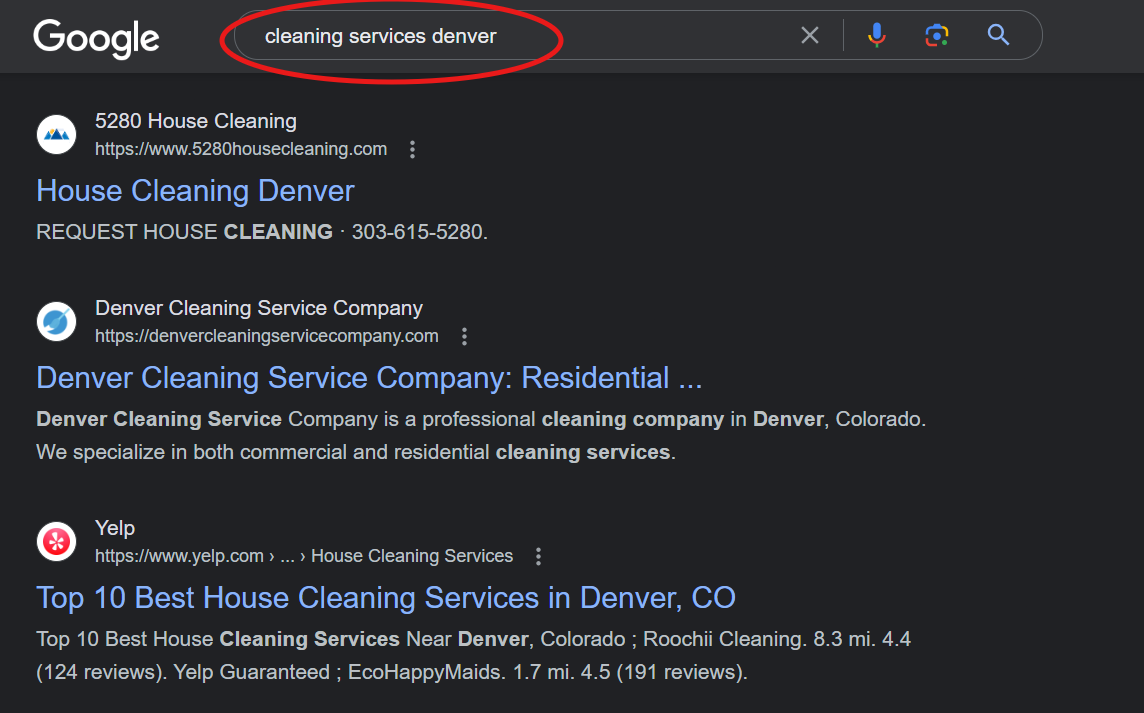
3. Increased Trust and Credibility
A strong local SEO strategy builds trust and credibility for service area businesses.
When potential customers find a local business listed prominently in search results, accompanied by positive reviews, accurate contact information, and relevant business details, it fosters a sense of trust.
This trust translates into increased confidence in the reliability and quality of the services offered by the SAB.
4. Higher Conversion Rates
Local SEO maximizes the chances of converting online visitors into actual customers. In fact, according to WebFx, 80% of local SEO searches convert into customers.
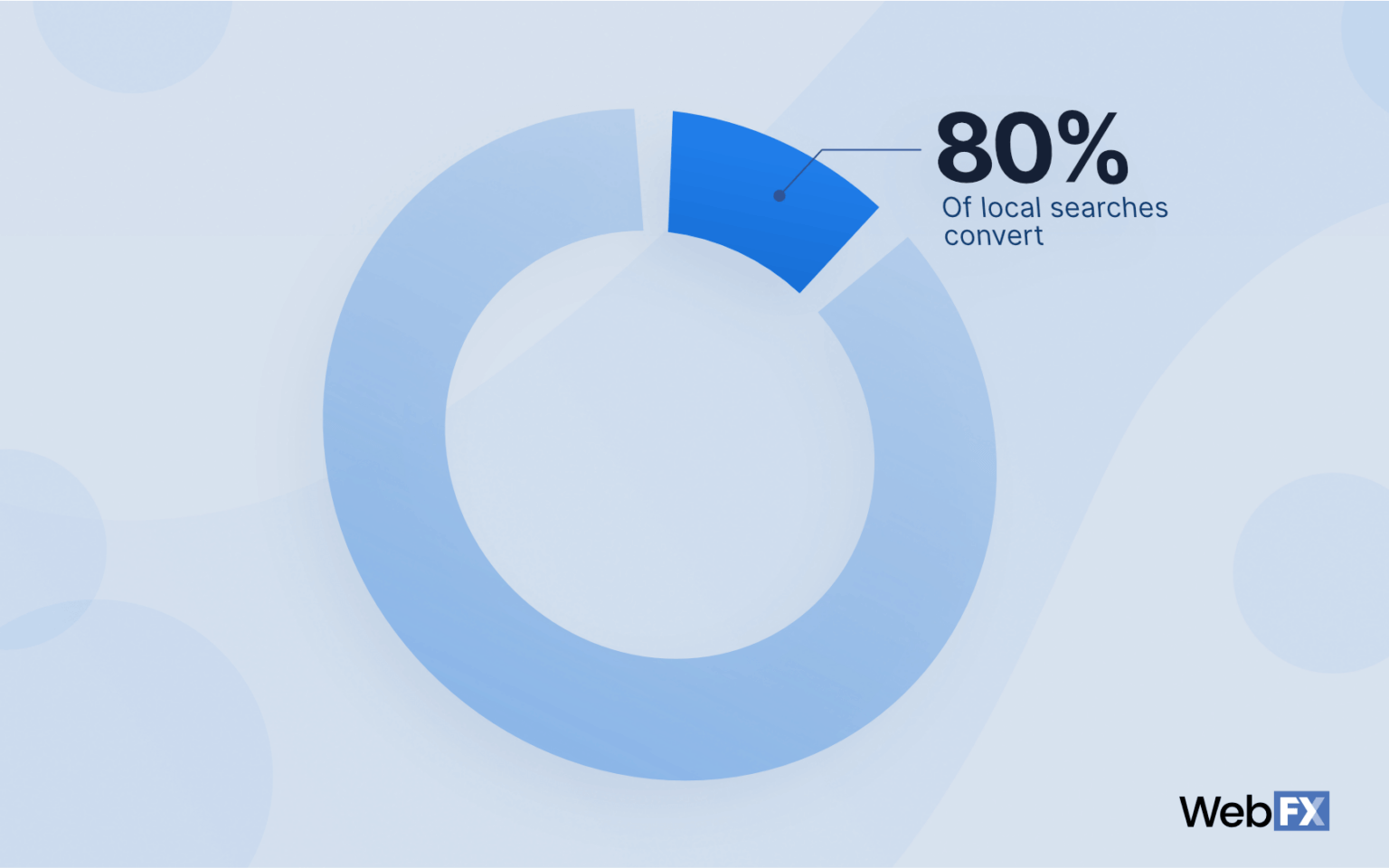
When service area businesses appear in local search results, they attract highly targeted traffic from individuals actively seeking services in their specific areas.
By providing optimized and informative content, clear calls-to-action, and easy ways to contact and engage with the business, SABs can encourage conversions and ultimately drive more business their way.
5. Competitive Advantage
Embracing local SEO gives service area businesses a competitive edge over their rivals. By optimizing their online presence and actively engaging with local customers, SABs can outperform competitors who neglect to focus on local SEO strategies.
This advantage allows service area businesses to capture a larger share of the local market and establish themselves as the go-to provider in their targeted service areas.
Local SEO Tips for Service Area Businesses
Implementing effective local SEO strategies is crucial for service area businesses to optimize their online presence and attract local customers. Here are some essential tips to help service area businesses improve their local search visibility:
Optimize GMB with the Right Keywords
Local keyword research forms the foundation of effective GMB optimization for service area businesses. By identifying and incorporating the right keywords into your Google My Business listing, you can significantly improve your local search visibility.
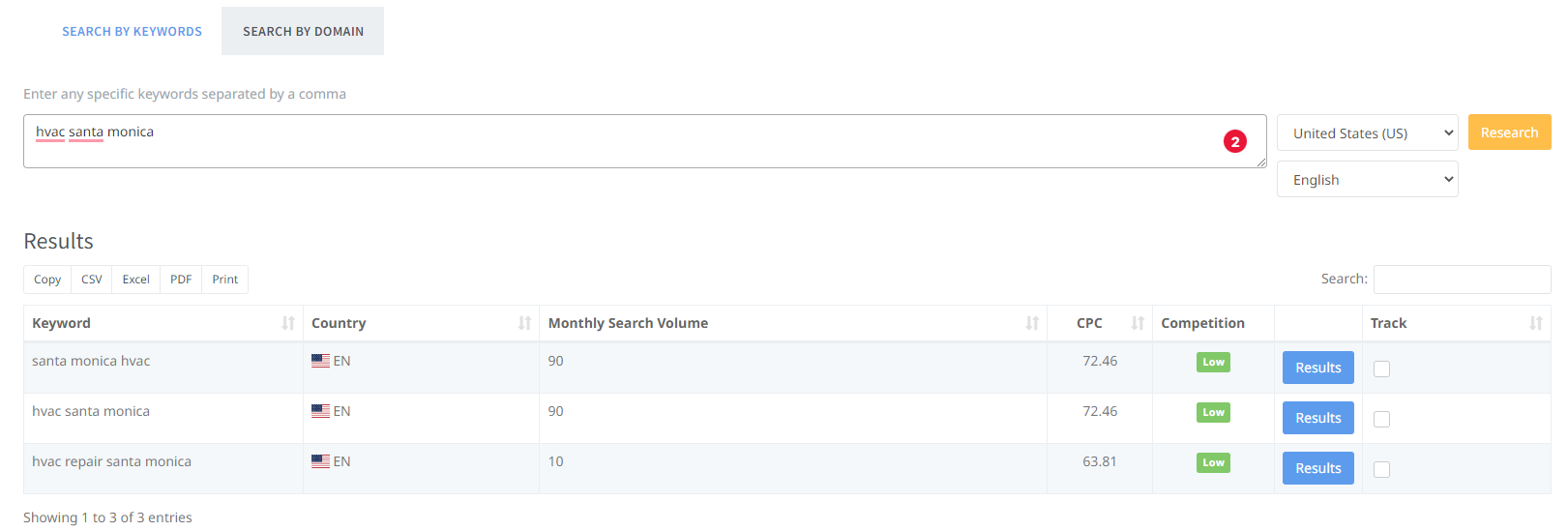
To optimize your Google My Business (GMB) with relevant keywords, you should include them in your business description, service offerings, and other relevant fields.
Start by identifying keywords that best describe your services and the areas you serve. Tools like Google's Keyword Planner or SEOptimer's Keyword Research Tool can provide insights into the keywords your potential customers are using to find services similar to yours.
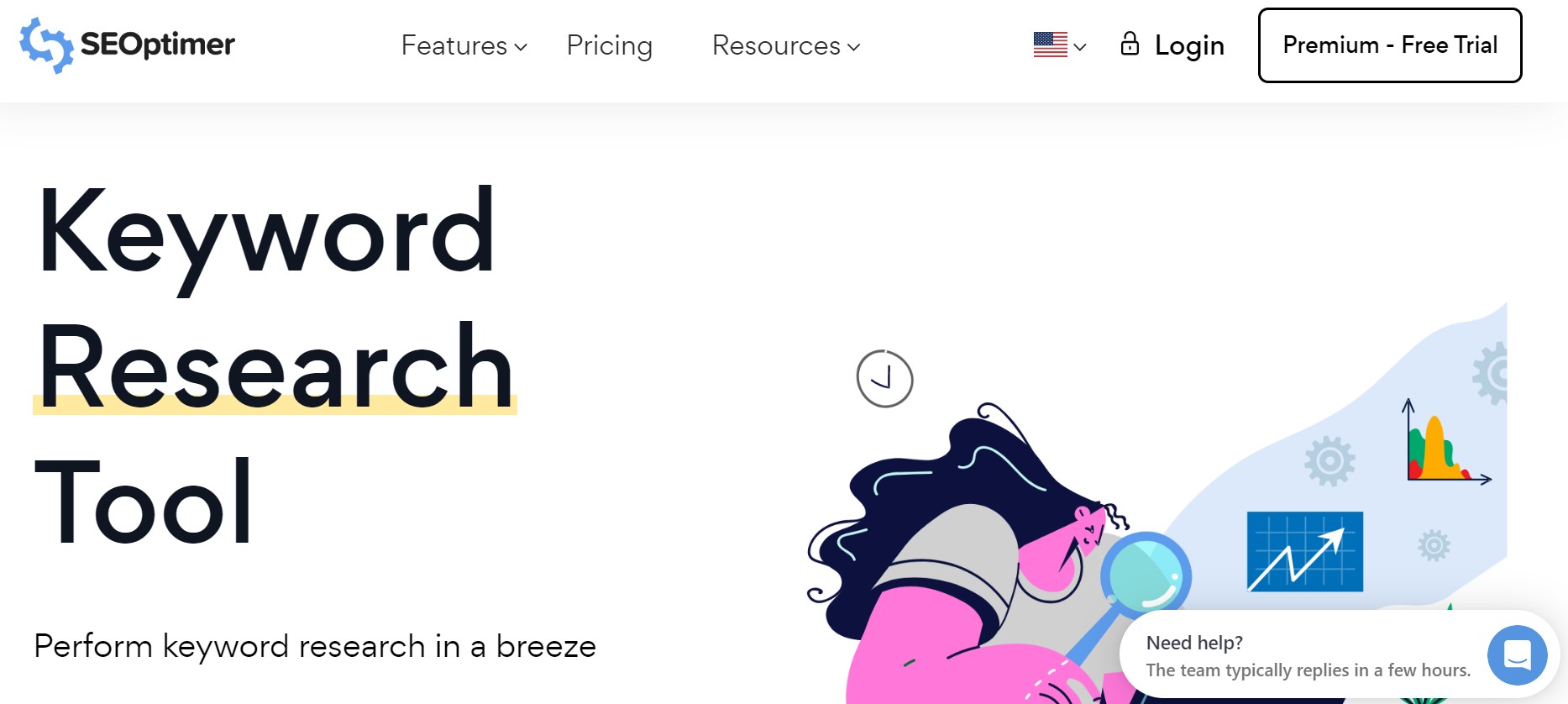
Once you've identified these keywords, naturally incorporate them into your GMB listing.
Keep in mind, though, that keyword stuffing – the excessive use of keywords – can lead to penalties from Google.
Your keywords should be used in a way that is organic and helpful to potential customers. Regularly updating your GMB listing with fresh content like posts, offers, and images, and integrating your chosen keywords where appropriate, can also boost your business's local search visibility.
Choose the Right GMB Business Category
Selecting the correct business category for your Google My Business (GMB) listing is crucial for optimizing your online presence and attracting relevant local customers.
Choosing the wrong business category can lead to undesired results, such as appearing in irrelevant search results or attracting the wrong audience.
To select the right business category, identify your main target keyword or keywords that best represent your business.
Look for a business category that closely relates to these keywords. For example, if you're a digital marketing agency, choosing the category "Internet Marketing Service" would be more accurate than selecting a broader category like "Advertising Agency."
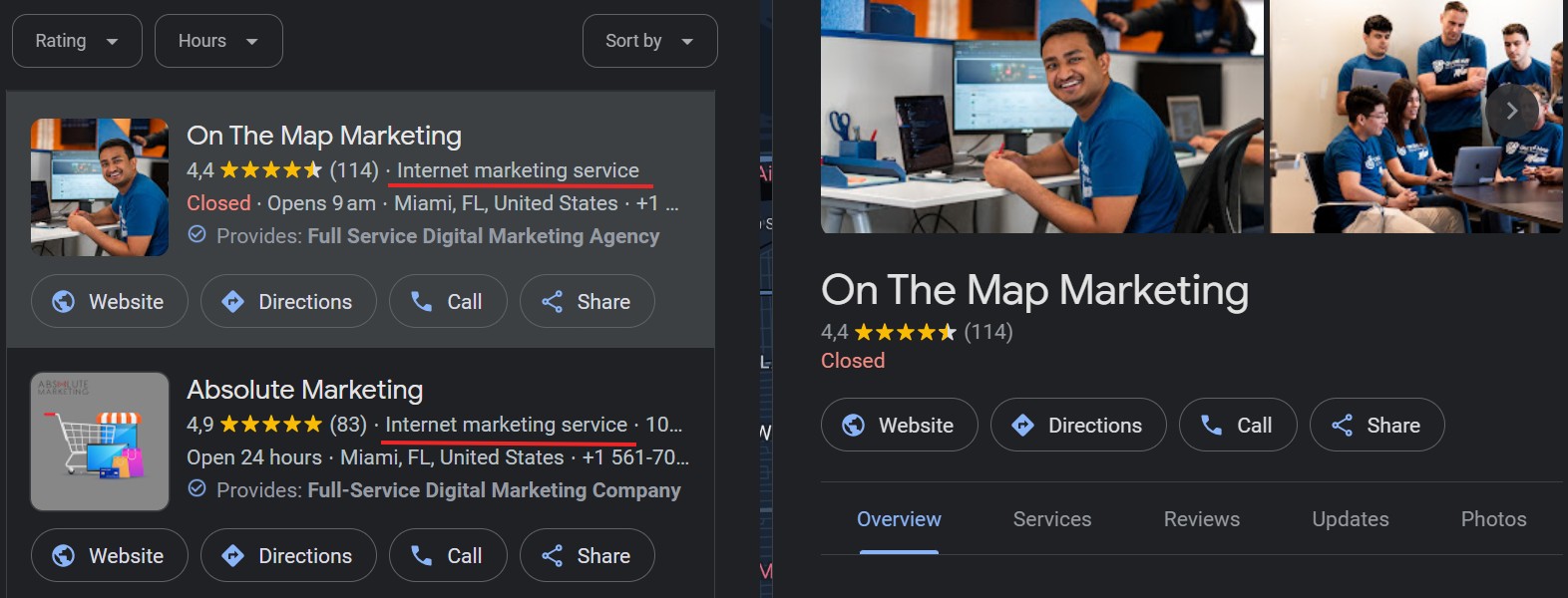
Select a business category that accurately describes the specific services you offer. If there are subcategories available within your industry, choose the one that best aligns with your specialization.
This allows potential customers to find you when searching for niche or specific services.
Note: If you’ve already selected your GMB business category during the account creation process, you can still change it to better match your business. Simply visit your account dashboard and business settings to change this.
Take Advantage of Google Posts
Google Posts is a powerful feature available in your Google My Business (GMB) listing that can significantly enhance your local SEO efforts.
These posts appear within your GMB listing in search results and on Google Maps, providing an excellent opportunity to engage with potential customers and promote your service offerings.
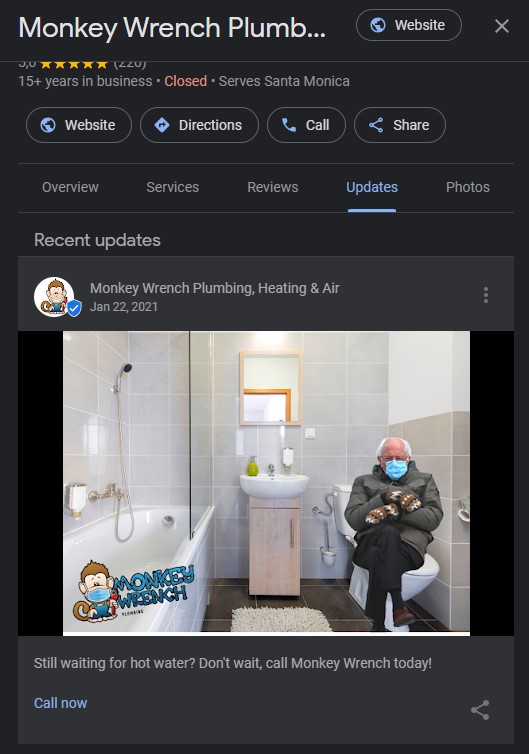
Each post should be centered around one of the services you offer.
Use your target keyword for that service in the post to help improve its visibility in relevant local searches. For example, if you're a locksmith offering emergency lockout services, you might create a post titled "Fast, 24/7 Emergency Lockout Services in [Your City]."
In each post, include a compelling call-to-action (CTA) that directs users to your website. This could be a link to a specific service page, a contact form, or a booking system. This not only provides an easy way for potential customers to learn more or get in touch but also drives additional traffic to your website.
Google Posts have a character limit, so it's important to keep your message concise yet engaging. Highlight the key benefits of your service, and why customers should choose you over competitors.
Ensure NAP Details are Consistent
NAP stands for Name, Address, and Phone number. These are the three most critical pieces of information for any local business, and their consistency across all online platforms is vital for local SEO.
NAP consistency refers to the uniformity of your business's name, address, and phone number information across all online directories, websites, social media platforms, and your Google My Business listing.
The goal is to ensure that wherever potential customers find you online, they see the same accurate and consistent information.
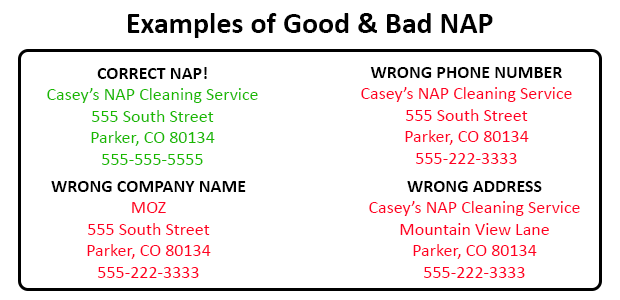
Source: Moz
Search engines like Google use NAP information to validate and authenticate businesses.
When your NAP information is consistent across multiple platforms, it signals to search engines that your business is legitimate and trustworthy, which can positively impact your local search rankings.
To maintain NAP consistency, make sure to regularly audit your online presence, correct any inaccuracies, and update your information whenever changes occur.
By doing so, you can enhance your local SEO efforts, improve your online reputation, and increase your chances of attracting and converting local customers.
Have a Review Management Strategy in Place
Online reviews play a significant role in shaping a business's reputation and influencing customer decisions.
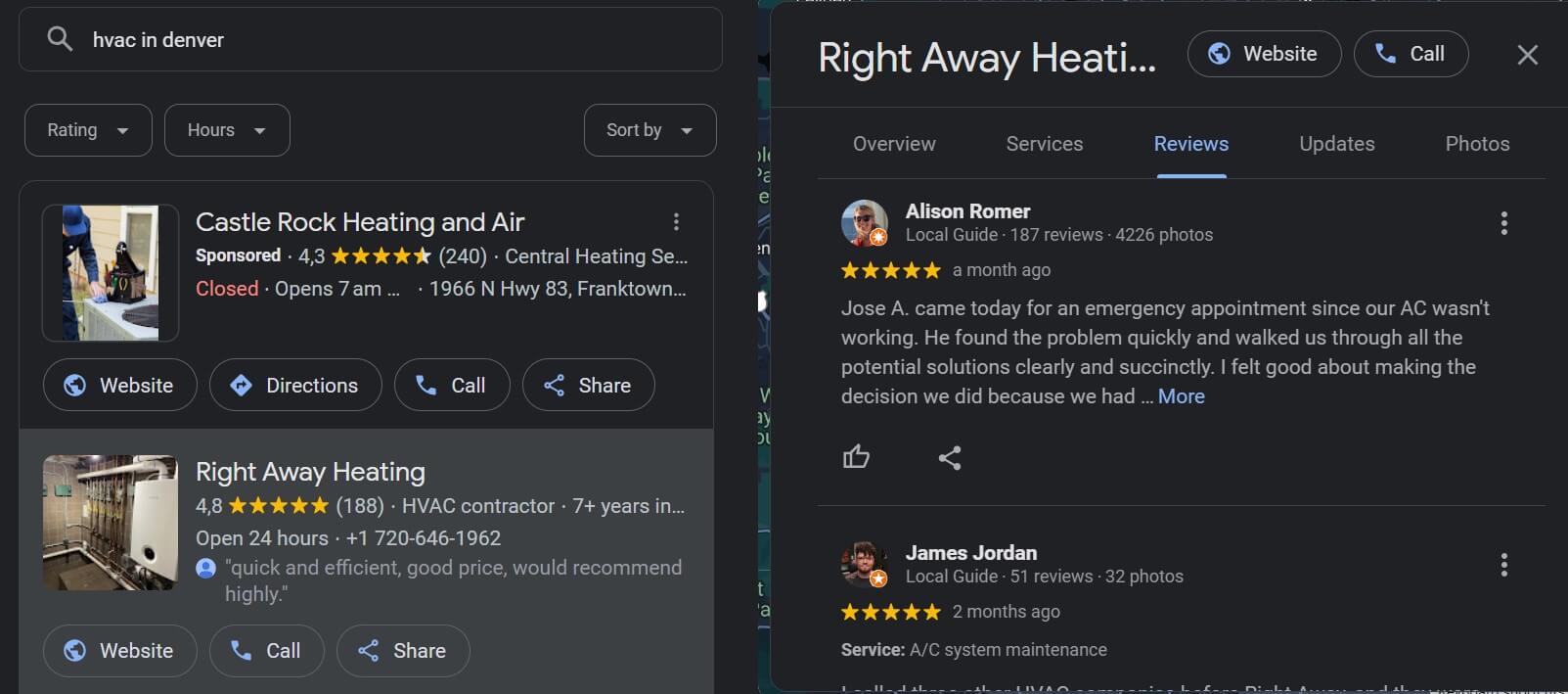
As such, having a robust review management strategy in place is not only advisable but crucial for the success of your local SEO efforts.
Search engines consider online reviews as a key factor when determining local search rankings.
Businesses with positive reviews are perceived as more trustworthy and reliable, which can lead to higher rankings in local search results.
As such, you should actively encourage satisfied customers to leave reviews. This could be through follow-up emails, on-site prompts, or even verbal requests at the end of a service.
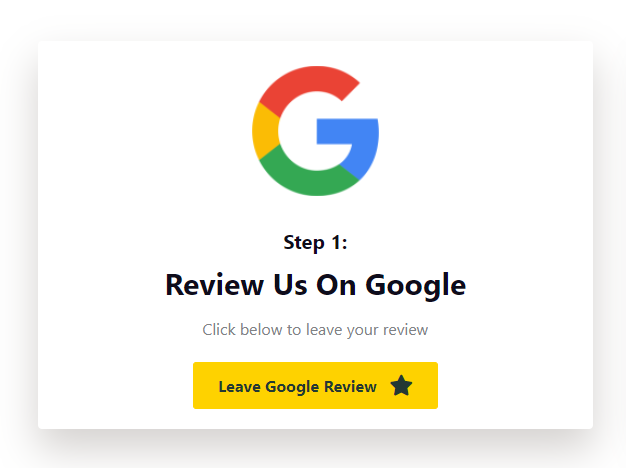
Make it a habit to respond to all reviews, both positive and negative.
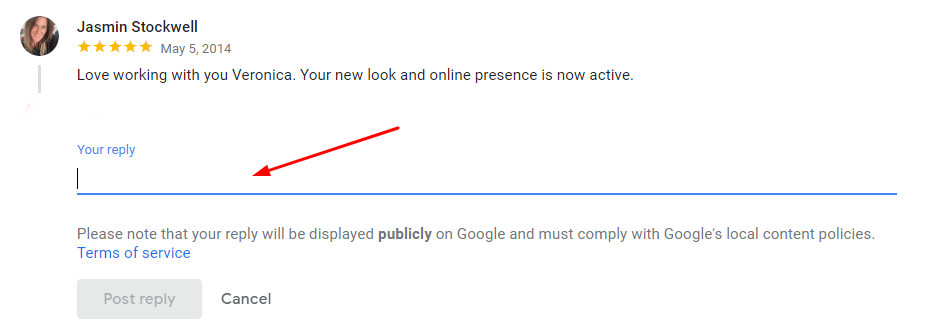
Thanking customers for positive reviews reinforces their positive experience, while addressing negative reviews shows you're proactive and care about customer satisfaction.
By implementing a solid review management strategy, you can enhance your online reputation, boost your local SEO, and ultimately drive more business from local customers.
Now, to stay on top of all your reviews can be a time-consuming task, especially if your business is popular in your community. To make the review management process easier and more streamlined, you can utilize our Google Review Management feature.
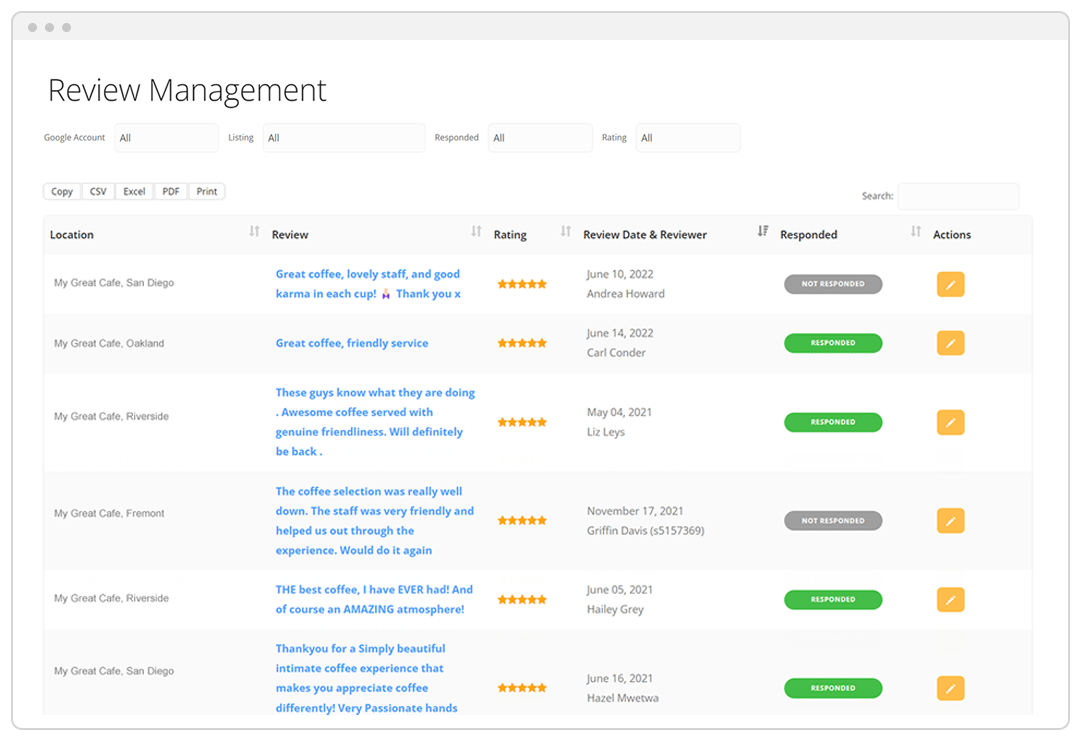
Our tool gets all of your Google reviews and shows them in one easy-to-use dashboard, where you can then respond to reviews. You can also filter by rating and response status to prioritize your response workload and to address negative reviews.
Complete Your Google Q and A Section
The Google Q&A feature is a valuable component of your Google My Business (GMB) listing that allows users to ask and answer questions about your business directly on your listing.
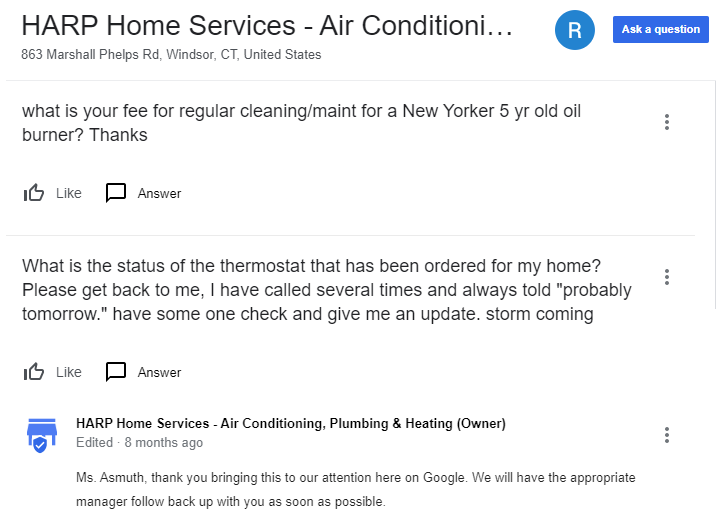
This feature can enhance your local SEO efforts, improve customer engagement, and provide valuable insights into what potential customers want to know about your business.
Unfortunately, as a business owner, you can't ask questions on your own GMB listing.
However, you can log out of your account, use another Google account to leave a question on your listing, then log back into your GMB admin dashboard to answer it. This allows you to proactively address common queries and share useful information about your business.
When answering questions, aim to provide detailed and helpful responses. Include relevant keywords where appropriate, but avoid keyword stuffing. The goal is to provide value to the user while enhancing your local SEO.
Create Stellar Location and Service Pages
Location and service pages are critical components of a well-optimized website, particularly for businesses that operate in multiple areas or offer a variety of services.
Location pages are dedicated web pages that provide information about your business's presence in a specific geographical location.
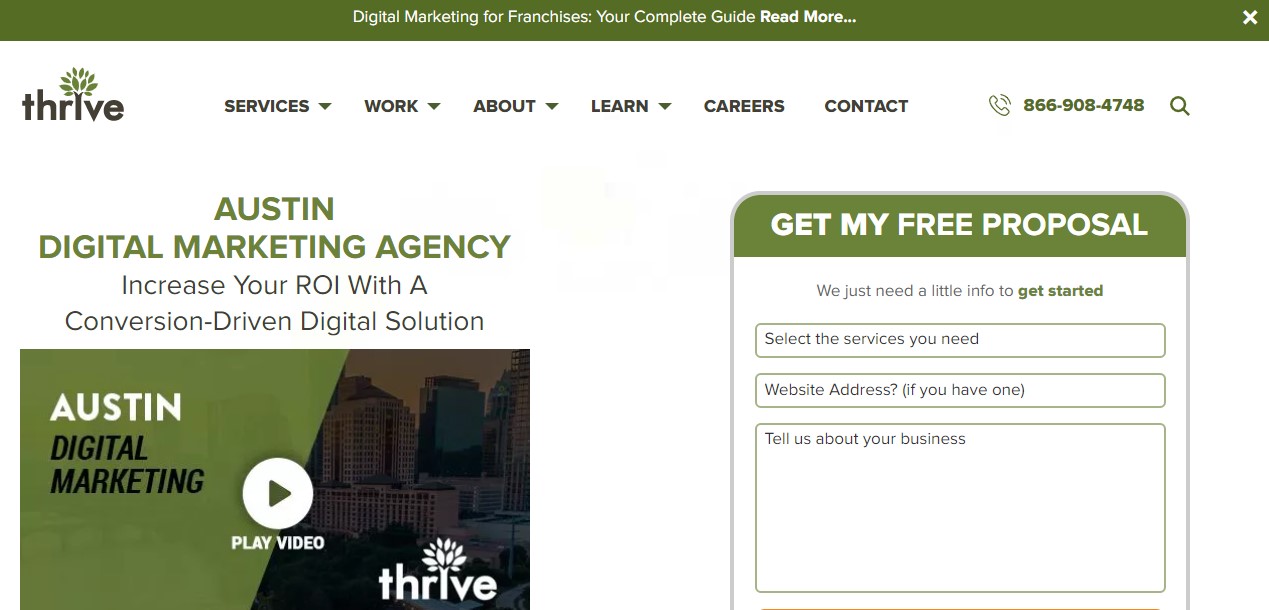
These pages typically include the name, address, and phone number of your business in that area, along with other relevant details such as operating hours, directions, and customer reviews.
Service pages, on the other hand, are webpages that detail the specific services or products your business offers. These pages often include descriptions, prices, benefits, FAQs, and customer testimonials related to a particular service or product.

When creating these pages, remember to incorporate local keywords into your location pages to improve their visibility in local search results.
For example, if you have a bakery in Boston, you might use keywords like "Boston bakery" or "best pastries in Boston."
By creating detailed, optimized location and service pages, you can improve your website's visibility in local search results, provide valuable information to potential customers, and ultimately drive more business.
Create Local Citations
Local citations, also known as Google Map citations, are online mentions of a business's name, address, and phone number (NAP) on various digital platforms. These can be on business directories, social media platforms, apps, or any other websites where users might look for businesses.
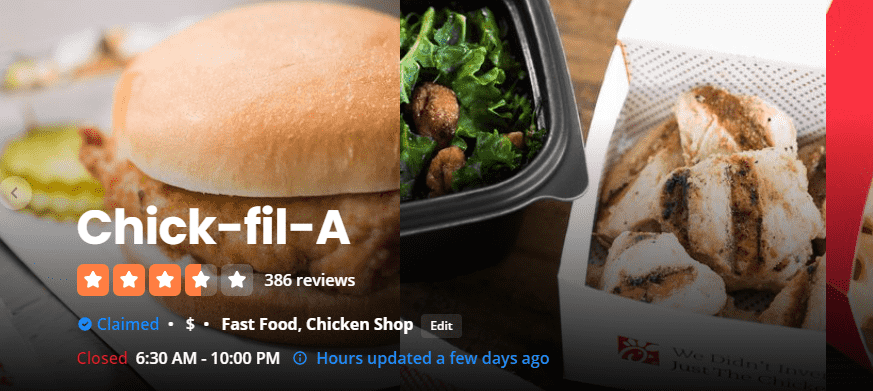
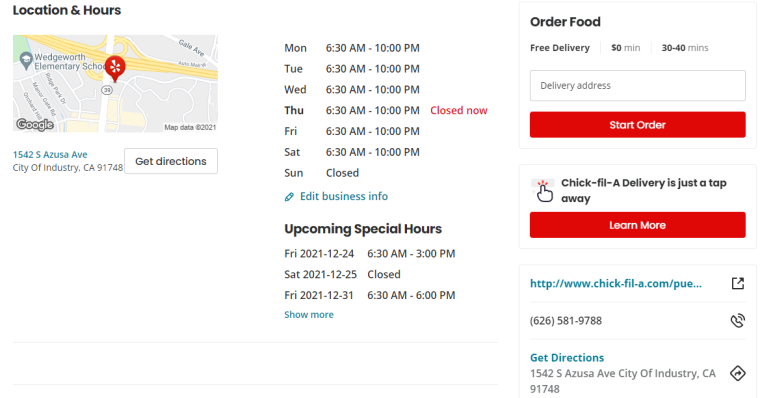
Citations play a significant role in local SEO strategies.
They help search engines verify that your business exists, understand what it does, and where it's located. When your business information is consistent across multiple platforms, it increases your credibility and visibility, ultimately boosting your local search rankings.
To create effective local citations, aim to list your business on leading directory sites relevant to your niche, as well as general sites. Some popular platforms include:
- Yelp: Known for its customer reviews, Yelp is a go-to platform for many users looking for local businesses.
- Hotfrog: This global business directory is another excellent platform for creating local citations.
- Yellowpages: A classic directory, Yellowpages is a trusted source for many people seeking local services.
Content Marketing for Local Businesses
Local content marketing involves creating and sharing valuable content to attract, inform, and engage an audience, with the ultimate aim of converting them into customers.
It's a powerful tool for local businesses, helping them build brand awareness, enhance their online presence, and establish themselves as authorities in their field.
Here are a few ways local businesses can leverage content marketing:
- Blogs: Regularly posting informative, engaging blog posts related to your industry can boost your website's SEO, draw traffic, and position you as an expert in your field. For example, a local plumber might post tips on how to unclog drains yourself.
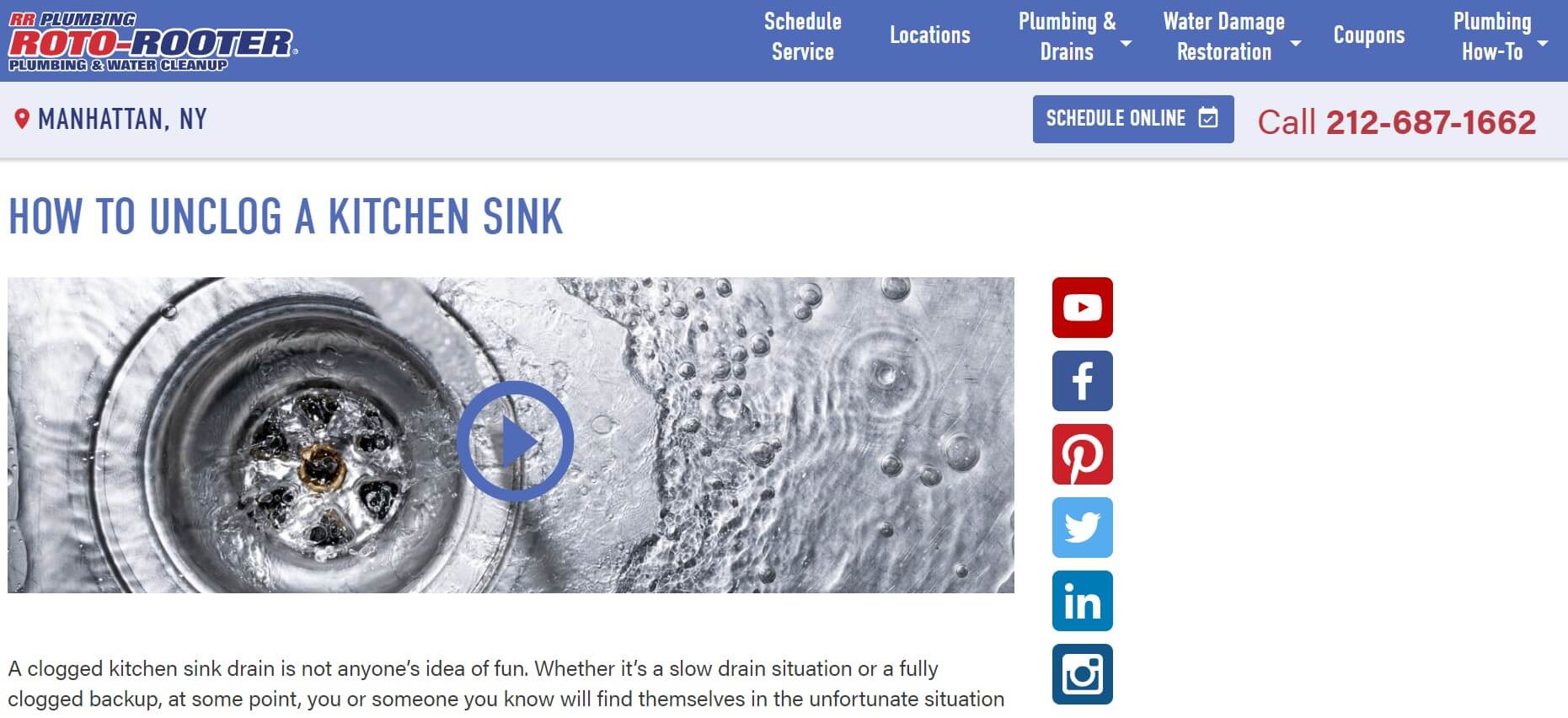
- Social Media Content: Social media platforms are excellent channels for sharing content and connecting with your local community. Share updates about your business, highlight customer testimonials, or post about local events you're participating in.
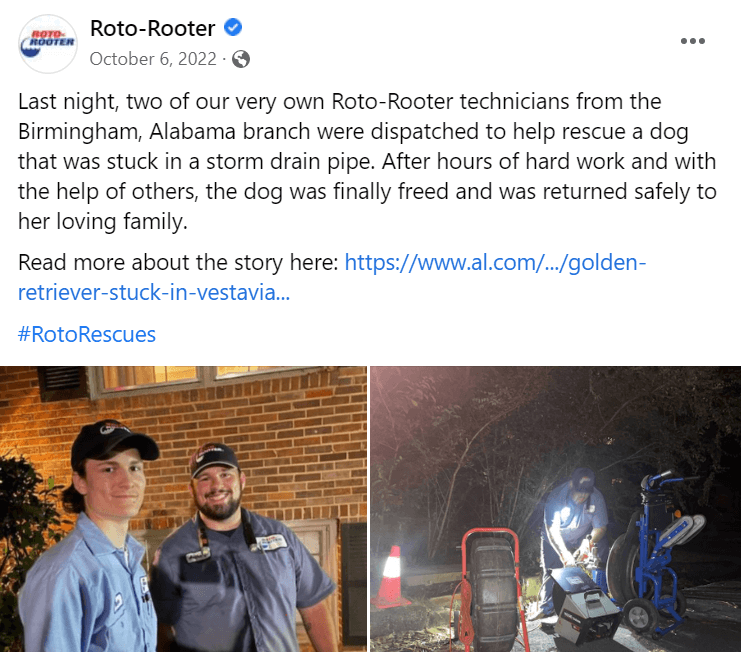
- Email Newsletters: Regular newsletters can keep your business top-of-mind for your customers. Share updates, promotions, or useful information. A garden center might send seasonal gardening tips, new product arrivals, or special discounts for loyal customers.
- Infographics: These visual content pieces can be highly shareable and engaging. They're great for breaking down complex information into digestible, interesting visuals. A local insurance agency might create an infographic explaining different types of coverage.
- Webinars/Workshops: Hosting educational webinars or workshops can showcase your expertise and provide value to your customers. For instance, a local craft store might host a webinar on DIY home decor projects.
- Local SEO Content: Creating content specifically designed to rank for local keywords can help improve your visibility in local search results. This could be blog posts targeting local keywords, location-specific landing pages, or locally-focused guides.
The key to successful content marketing is to consistently provide value. The more useful your content is, the more likely it is to attract and retain customers. Remember, content marketing isn't just about selling—it's about building relationships and establishing trust.
Build Internal Links
Internal links are hyperlinks that point from one page on a website to another page on the same website.
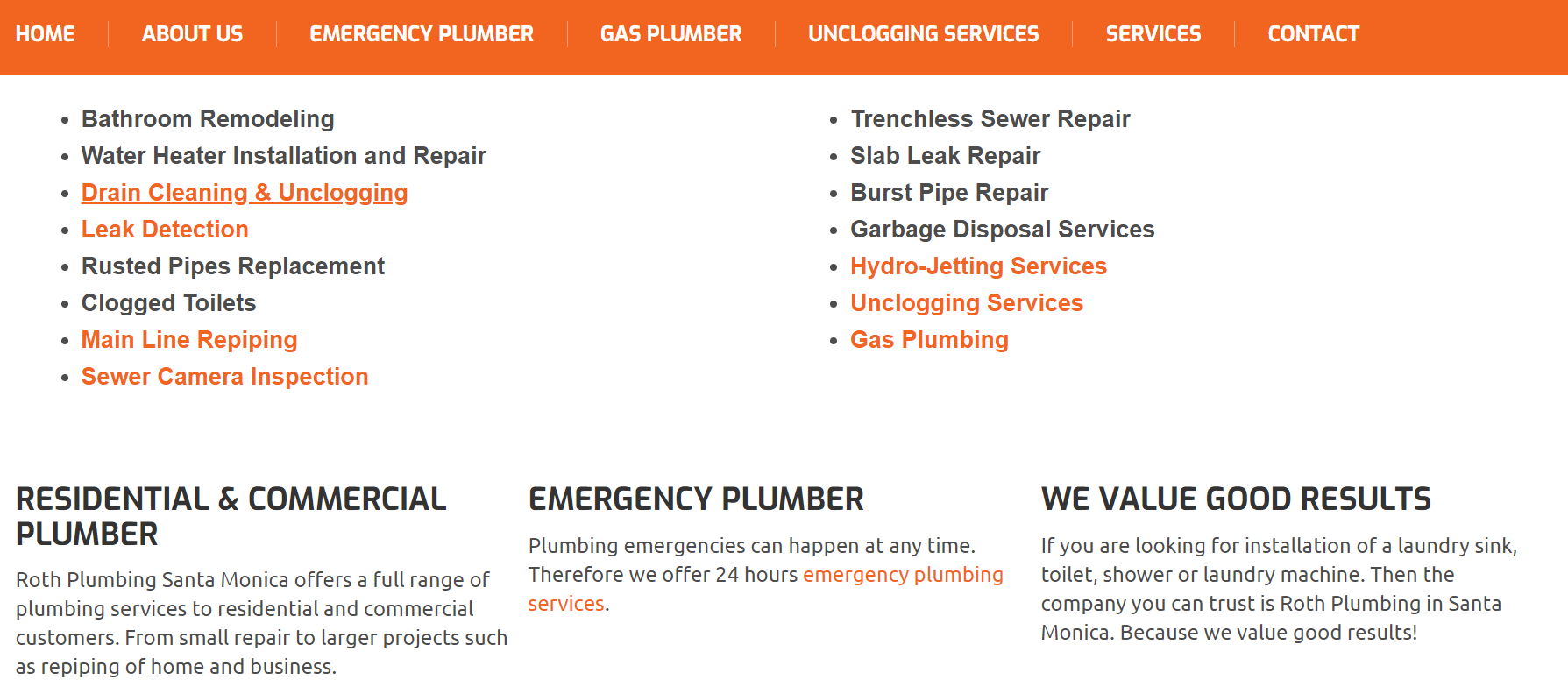
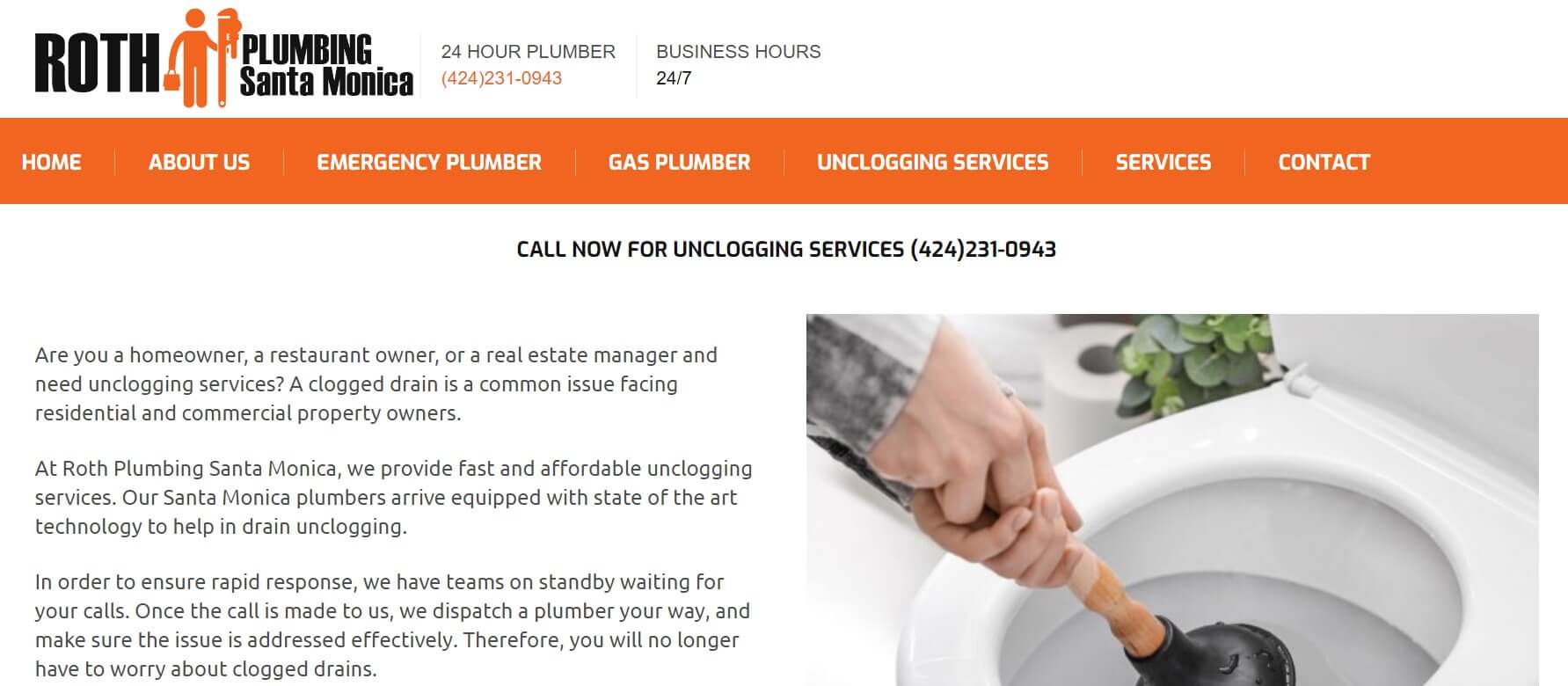
They're not only useful for navigation within your site but also play a significant role in establishing the architecture and spreading link equity (SEO value) across your website.
Here's why building internal links is crucial for your local SEO strategy:
- Improved User Experience: Internal links can guide your visitors to additional relevant content, enhancing their overall experience on your site. This can increase their time spent on your website and potentially lead to higher conversion rates.
- Website Hierarchy and Navigation: Internal links help define the structure and hierarchy of your website, making it easier for users to navigate. This is particularly important for larger websites with many pages.
- Link Equity Distribution: Internal links spread link equity throughout your site, which can help improve the ranking potential of your webpages. Pages with more internal links pointing to them may receive more link equity and thus have a better chance of ranking higher in search results.
- Indexing: Effective internal linking can help search engines find and index your webpages more efficiently, improving your visibility in search results.
So, how can you use internal linking effectively as part of your local SEO strategy? Here are a few tips:
- Link to relevant content: Ensure that your internal links point to related content that might be useful or interesting to your readers. This helps keep them engaged and encourages them to explore your site further.
- Use descriptive anchor text: Anchor text is the clickable text in a hyperlink. Make sure your anchor text is descriptive and gives an idea of what the linked page is about. Avoid generic terms like "click here".
- Don't overdo it: While internal links are beneficial, too many can be overwhelming and look spammy. Aim for a balance and only include links that add value for your visitors.
- Consider the hierarchy: Your most important pages should have the most internal links. This tells search engines that these pages are significant and should be ranked higher.
By incorporating effective internal linking into your local SEO strategy, you can enhance user experience, improve your website's navigability, and boost your visibility in search engine results.
Wrapping Up
As we've navigated through the landscape of local SEO, we've highlighted the importance of creating local citations, leveraging content marketing, and building a robust internal linking strategy.
These tactics are not just about enhancing your online presence or climbing the search engine rankings.
They're about establishing your business as a trusted, authoritative entity in your local community. By effectively executing these strategies, you can connect with your audience on a deeper level, foster relationships, and ultimately drive your business growth in the digital sphere.
Remember, the journey to successful local SEO is a marathon, not a sprint. Consistency, quality, and patience are key.


